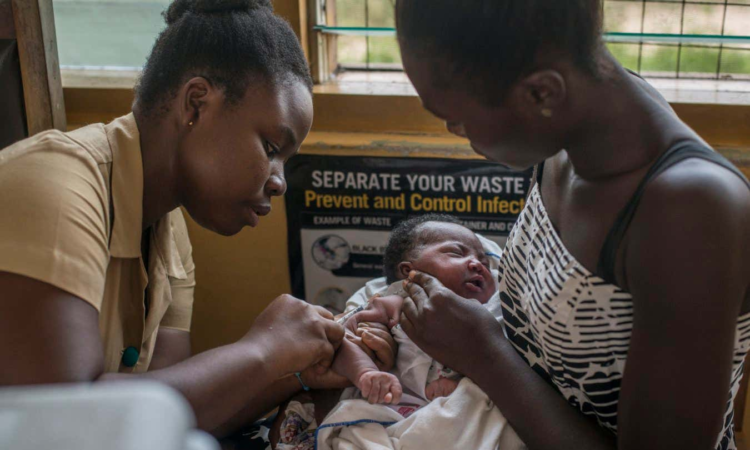
Advertisement
A malaria vaccine that is 77 per cent effective in clinical trials has been approved for use in children 3 to 5 years old, the group most vulnerable to dying from the disease
By Grace Wade
13 April 2023

A nurse administering a vaccine to a child in Ghana in 2019
AFP via Getty Images
A nurse administering a vaccine to a child in Ghana in 2019
AFP via Getty Images
Ghana is the first country to approve a new, highly effective malaria vaccine called R21/Matrix-M. The decision marks a milestone in the efforts to combat a disease that killed 619,000 people in 2021, most of them young children.
The country’s Food and Drugs Authority authorised the shot on 13 April for children between the ages of 3 and 5 years old – the age group most vulnerable to dying from malaria in areas with high transmission rates. A majority of countries in Africa, including Ghana, account for 95 per cent of all malaria cases worldwide, and 96 per cent of deaths. Children under 5 account for 80 per cent of deaths in the region, according to the World Health Organization (WHO).
Read more:
Should more countries vaccinate children against chickenpox?
Advertisement
Immunisation with the recently approved vaccine involves three primary doses followed by a booster shot one year later. While the vaccine’s phase III trial is still ongoing, an earlier phase II trial conducted in 2019 found it was 77 per cent effective at preventing infection. The only other approved malaria vaccine – Mosquirix, manufactured by UK pharmaceutical company GSK – is about 30 per cent effective at protecting against severe illness.
R21/Matrix-M is the first vaccine to exceed the WHO’s malaria vaccine efficacy goal of 75 per cent. The WHO has not yet approved it, but according the BBC, the organisation is reviewing data from the ongoing phase III trial involving 4800 children. The drug’s developer, the University of Oxford, is expected to report data on that trial later this year.
The drug’s manufacturer, the Serum Institute of India, said in a press release that it has the capacity to produce more than 200 million doses of the drug annually – significantly more than the 15 million yearly doses of Mosquirix promised by GSK.
Get the most essential health and fitness news in your inbox every Saturday.
“Malaria is a life-threatening disease that disproportionately affects the most vulnerable populations in our society and remains a leading cause of death in childhood,” said Adar Poonawalla at the Serum Institute of India in a press release. “The licensure of the R21/Matrix-M for use in Ghana is a significant milestone in our efforts to combat malaria worldwide.”
Topics:
Advertisement
Receive a weekly dose of discovery in your inbox! We’ll also keep you up to date with New Scientist events and special offers.
Explore the latest news, articles and features
News
Subscriber-only
News
Subscriber-only
News
Subscriber-only
News
Free
Trending New Scientist articles
Advertisement
Download the app







